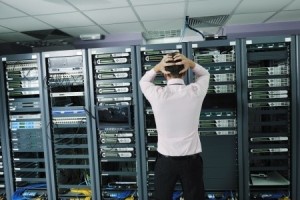
Disk-based backup systems are quickly becoming redundant, as cloud storage becomes more affordable, more reliable and easier to use.
SystemsNet is more than a suite that virtualizes physical processes, but it provides quick, reliable recovery of your virtualized information and application. Modern organizations are modernizing their IT services, with competent organizations future-proofing their infrastructure by investing in virtual machines. Virtualization allows companies to use less physical servers for their needs, allow easy allocation and departmentalization of information, and enable replication and snapshots of their servers. However, businesses are facing demands for greater access points during collaborative efforts, with a very small margin for errors. Virtualization creates an environment where downtimes and data loss are no longer threats to servers.
Virtualization and Disaster Recovery: Virtualization has changed how IT departments view their servers. No longer are departments tied to certain vendors or server types – virtualization frees them of this restraint. Virtualization lowers costs, reduce the electrical footprint of the IT department, as well as boost efficiency of data. Virtualization remedies the problem related to aging servers that can potentially put information at risk. Physical servers will require different backup tools that are compliant with specific vendor servers. Virtualisation of servers protect virtual machines via snapshots or full backups and is the end point for back disaster recovery.
Virtualization Ensures Business Continuity
Disaster recovery planning is integral to any organization that relies on its IT infrastructure. What qualifies as a disaster will be different depending on industry and location of information, but typically it pertains to data that is in a compromised position. With careful planning, company owners and administrators are able to safely integrate virtualization to ensure business continuity and mitigate any potential failures.
Before virtualization, a dedicated backup software was required, to be installed on each server to ensure efficacy. However, this was and still is very labor intensive, with backup data being allocated to offsite locations across a network. Virtualization is seamless, less labor intensive, and easily implemented via cloud storage, where information is stored and replicated. Real time replication allows for information be accessible via an administrator’s personal computer or smart device.
Traditional backups required that data be saved in an offsite location as quickly as possible, utilizing the capabilities of the full network. However, this caused downtime that needed to be carefully executed and timed as to not to interfere with everyday operations. Performance issues can run rampant in these scenarios.
There is also an issue with grouping of different server types that can cause cross-compatibility issues. SystemsNet offers a framework that is compatible across different server networks, as well as engaging entire backups of hosted virtual machines. This creates a space of fault tolerance, allowing for data in the virtual machine to be accessible, even during hardware failures. Shadow copies of the servers are saved and replicated, allowing it to be posted onto new servers with no downtime.
Disk-Based Backup System Are Quickly Becoming Redundant: Cloud storage is changed in the past decade – it has become more affordable, available to the everyday consumer, easily implemented, and effective in saving replications of servers. Physical storage, however effective, is limited to restraints of a physical product. Once lost, it is misplaced forever. The inefficiency of data onto physical servers and memory centers is plagued by costs and plagued redundancy. Cloud storage allows for the implementation of access points that are not typical of physical storage devices. To learn more about how SystemsNet can help with your IT processes, contact us. Virtualization is the next step of any competent IT environment, ensuring the safety of information with full backups of data. We are a tremendous competitive differentiator, expediting data recovery in the event of hardware failure. Contact us to learn more.